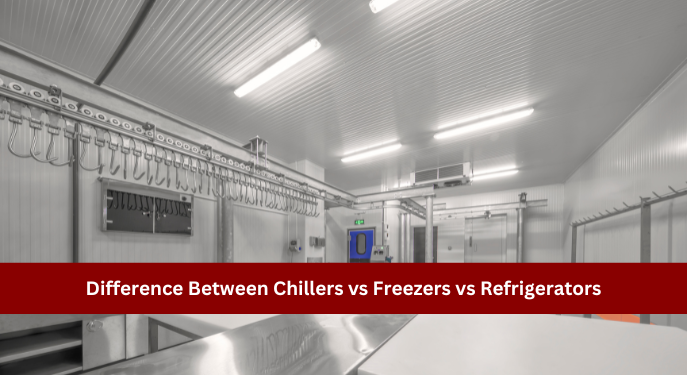What is the Difference Between Chillers, Freezers, and Refrigerators: A Comprehensive Guide
In today’s kitchens, chillers, freezers, and refrigerators are indispensable for maintaining food freshness, safety, and quality. While they all serve the purpose of food storage, each appliance offers unique features and benefits tailored to specific needs. In this guide, we will explore the differences between chillers, freezers, and refrigerators, helping you choose the right appliance for your home.
Understanding Temperature Ranges and Applications
Chillers:
Chillers operate within a temperature range of approximately 0°C to 7°C (32°F to 45°F), keeping food just above freezing. This temperature is ideal for storing highly perishable items such as meat, poultry, seafood, dairy products, and pre-cooked meals. By maintaining a stable, cool environment, chillers prevent bacterial growth and extend the shelf life of these foods without freezing them.
Benefits of Chillers:
- Extended Freshness: Keeps perishable foods fresh longer without freezing.
- Prevents Bacterial Growth: Maintains a safe temperature to slow down bacterial activity.
- Ideal for Ready-to-Eat Items: Perfect for storing pre-cooked meals and items that need to be quickly accessed.
Freezers:
Freezers maintain temperatures at or below -18°C (0°F), which halts bacterial activity and preserves food for extended periods. Commonly used for storing meat, poultry, seafood, fruits, vegetables, and leftovers, freezers are essential for long-term storage. Freezing food locks in nutrients, flavors, and textures, making it a practical choice for bulk storage.
Benefits of Freezers:
- Long-Term Preservation: Allows you to store food for months, retaining quality and nutrients.
- Cost-Effective: Ideal for bulk buying and reducing food waste by extending shelf life.
- Versatile Storage: Suitable for a wide range of foods, from raw meat to frozen vegetables and desserts.
Refrigerators:
Refrigerators function at a temperature range of 4°C to 7°C (39°F to 45°F), providing a versatile environment for a variety of foods. From fresh produce and beverages to condiments and leftovers, refrigerators are everyday essentials that help keep your food fresh and ready to eat.
Benefits of Refrigerators:
- Versatile Storage: Accommodates a variety of foods, from fresh produce to beverages.
- Convenience: Provides easy access to everyday items.
- Energy Efficient Models Available: Many modern refrigerators are designed to save energy while keeping food fresh.
Energy Efficiency: Save Money and the Planet
When choosing between a chiller, freezer, or refrigerator, energy efficiency is a critical factor. Energy-efficient models not only reduce your carbon footprint but also lead to significant savings on your electricity bill. Look for the Energy Star certification or other energy efficiency ratings when shopping for appliances. Investing in energy-efficient models can result in long-term savings and a positive environmental impact.
Maintenance and Cleaning: Keep Your Appliances Running Smoothly
Proper maintenance and regular cleaning ensure that your chillers, freezers, and refrigerators continue to operate at peak performance. Follow these tips to maximize the lifespan and efficiency of your appliances:
- Clean interiors and exteriors regularly to prevent the buildup of bacteria and mold.
- Defrost freezers periodically to avoid ice accumulation, which can reduce efficiency and increase energy consumption.
- Check for leaks and malfunctions regularly, and address any issues promptly to prevent further damage.
Additional Considerations: Find the Perfect Appliance for Your Needs
When selecting a chiller, freezer, or refrigerator, consider the following factors:
- Size and Capacity: Evaluate the size of your kitchen and your food storage habits. For larger families or those who buy in bulk, a larger appliance may be necessary.
- Noise Level: If you’re sensitive to noise, look for appliances with noise-reduction technology. Modern models often feature quiet operation to minimize disruption in your home.
- Features and Technology: Many appliances come with advanced features such as automatic defrost, ice makers, smart technology, and humidity control. Determine which features align with your lifestyle and preferences.
Conclusion
Chillers, freezers, and refrigerators each serve vital roles in food preservation, but understanding their differences can help you make the best choice for your kitchen. By considering factors like temperature ranges, energy efficiency, maintenance, and additional features, you can select the perfect appliance to meet your needs. Opting for high-quality, energy-efficient models not only enhances your kitchen’s functionality but also supports a more sustainable lifestyle.



